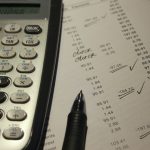Reporting Accountants| Top Skills and Qualifications to Look for
Reporting Accountants| Top Skills and Qualifications to Look for
In the realm of finance and accounting, reporting accountants play a crucial role in ensuring that financial statements are accurate, timely, and compliant with regulatory standards. Their work not only impacts internal decision-making but also affects external stakeholders such as investors and regulators. To find a reporting accountant who can deliver excellence, it’s essential to understand the skills and qualifications that make an ideal candidate. This blog post explores the top skills and qualifications to look for in reporting accountants, helping you make an informed hiring decision.

Understanding the Role of Reporting Accountants
Before diving into the skills and qualifications, it’s important to understand what reporting accountants does. Reporting accountants are responsible for preparing and presenting financial reports that provide insight into a company’s financial performance. They ensure that financial statements comply with accounting standards, regulatory requirements, and internal policies. Their role is vital in maintaining financial transparency and accuracy.
Key Skills for Reporting Accountants
1. Technical Accounting Expertise
A robust understanding of accounting principles and standards is fundamental for reporting accountants. This includes knowledge of Generally Accepted Accounting Principles (GAAP), International Financial Reporting Standards (IFRS), and any other relevant regulations specific to the industry. Reporting accountants should be adept at preparing balance sheets, income statements, cash flow statements, and other financial reports.
2. Analytical Skills
Reporting accountants must possess strong analytical skills to interpret complex financial data and identify trends, anomalies, and insights. This skill is crucial for ensuring the accuracy of financial reports and providing valuable financial analysis that supports strategic decision-making. They should be able to use analytical tools and techniques to evaluate financial performance and forecast future trends.
3. Attention to Detail
Precision is paramount in financial reporting. Reporting accountants need to have a keen eye for detail to ensure that all data entries, calculations, and financial statements are accurate and error-free. Small mistakes can lead to significant issues, including compliance problems and financial misrepresentation. Attention to detail helps maintain the integrity of financial reports and builds trust with stakeholders.
4. Proficiency in Accounting Software
In today’s digital age, proficiency with accounting software and tools is essential. Reporting accountants should be familiar with popular accounting software such as QuickBooks, Xero, and SAP, as well as advanced reporting tools and data analytics platforms. Mastery of these tools enables them to efficiently manage large volumes of data, automate processes, and generate accurate financial reports.
5. Strong Communication Skills
Reporting accountants need excellent communication skills to present financial information clearly and effectively. This includes writing detailed reports, creating presentations, and explaining financial data to non-financial stakeholders. Good communication skills ensure that financial insights are accessible and understandable, aiding in informed decision-making.
6. Problem-Solving Abilities
The ability to tackle complex financial problems and resolve discrepancies is crucial for reporting accountants. They must be skilled at identifying the root causes of issues, developing solutions, and implementing corrective actions. Problem-solving skills help in maintaining accurate financial records and ensuring compliance with accounting standards.
7. Organizational Skills
Reporting accountants often manage multiple tasks and deadlines simultaneously. Strong organizational skills are necessary to prioritize tasks, manage time effectively, and ensure that all reporting requirements are met promptly. Organizational skills also help in maintaining orderly and systematic financial records.
Essential Qualifications for Reporting Accountants
1. Educational Background
A solid educational foundation in accounting or finance is essential for a reporting accountant. Typically, candidates should have a bachelor’s degree in accounting, finance, or a related field. Advanced degrees, such as a Master’s in Accounting or Finance, can further enhance their expertise and career prospects.
2. Professional Certifications
Professional certifications add significant value to a reporting accountant’s qualifications. The following certifications are highly regarded:
Certified Public Accountant (CPA): This certification demonstrates a high level of expertise in accounting and is often a prerequisite for advanced reporting roles.
Certified Management Accountant (CMA): This certification focuses on management accounting and financial management, enhancing skills in financial analysis and reporting.
Certified Internal Auditor (CIA): This certification emphasizes auditing skills, which can be beneficial for reporting accountants involved in internal controls and compliance.
3. Experience in Financial Reporting
Practical experience in financial reporting is crucial. Look for candidates who have worked in roles involving the preparation and analysis of financial reports. Experience in similar industries can be an added advantage, as it provides familiarity with specific regulatory requirements and industry practices.
4. Knowledge of Regulatory Requirements
Understanding regulatory requirements and compliance standards is critical for a reporting accountant. They should be knowledgeable about relevant regulations, such as Sarbanes-Oxley Act (SOX) for publicly traded companies, and other industry-specific compliance requirements. This knowledge ensures that financial reports meet legal and regulatory standards.
5. Continuous Professional Development
The field of accounting is constantly evolving, with changes in regulations, standards, and technology. A commitment to continuous professional development is important for staying updated with the latest trends and advancements. Look for candidates who actively pursue ongoing education, attend industry seminars, and engage in professional organizations.
Choosing the right reporting accountant is essential for maintaining the accuracy and integrity of your financial reporting. By focusing on key skills such as technical accounting expertise, analytical skills, attention to detail, and proficiency in accounting software, you can find a candidate who will effectively manage and present your financial data. Additionally, ensuring that candidates have the necessary qualifications, including educational background, professional certifications, and relevant experience, will help you secure a reporting accountant who meets your business needs.
Investing time and effort into finding the right reporting accountant will ultimately contribute to better financial management, improved compliance, and enhanced decision-making for your organization.










